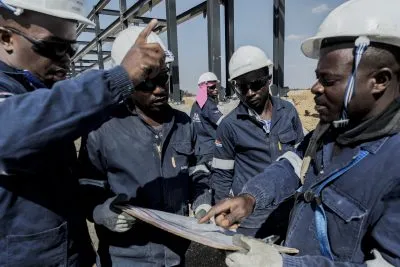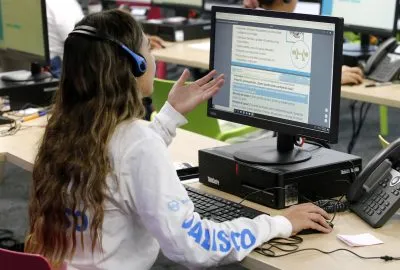Some countries are pushing for an immediate investigation into the WHO’s handling of the Covid-19 pandemic. Gyude Moore explains why such a move would be ill-advised and counterproductive
The epochal scale of the coronavirus pandemic will probably define our lives the way wars tend to demarcate history into two distinct eras – before the war and after the war. Not since the 1917 Spanish flu has a global health crisis had such an impact. And while the economic cost to the world will be immense, Africa’s extreme poverty leaves it especially exposed.
The continent is set to suffer its first recession in 25 years, with the World Bank predicting that GDP could shrink between 2.1% and 5.1% this year. According to McKinsey, Africa could lose up to 18m of its sparse formal jobs and up to 100m of its informal jobs; 30 to 35m are expected to see reductions in incomes. At the same time, remittances are expected to fall by up to 23% across sub-Saharan Africa. Because it is set to lose so much, there is no region with a higher stake and greater interest in an investigation of how this pandemic started and how it spread.
Yet, unlike some in the West, no one in Africa is calling for an investigation of the World Health Organisation (WHO) right now, and for good reason. The WHO is the agency coordinating the global response to coronavirus. Africa depends on the WHO’s support as it responds to the pandemic and has no incentive to disrupt its effectiveness. The push for an investigation into the performance of the WHO in the middle of a pandemic is ill-advised and counterproductive.
There are no compelling investigative or public health reasons to launch an investigation now. The WHO and the United Nations are not resisting a review. Both are on the record calling for one either after the crisis is resolved or once we have a better handle on it.
A well-run investigation would require access to the key players and decision makers at the WHO. If an investigation were to begin now it would be disruptive to their pandemic response duties. WHO staff would have to be available to health ministries battling Covid-19 across the world and simultaneously to the investigators. It is difficult to imagine who benefits from such sequencing and how it contributes to global public health.
There is a process for such wide-ranging investigations; the US’s 9/11 Commission is an instructive example. After the September 11 attacks, questions arose about both preparedness and the ensuing response. The National Commission on Terrorist Attacks Upon the United States, also known as the 9/11 Commission, was rightfully set up on 27 November, 2002 – a full 14 months after the attack. It would have been ridiculous to divert attention and precious resources away from the response in the immediate aftermath.
But this is exactly what those demanding an investigation now are asking the WHO to do – to divert its staff and resources away from responding to an unprecedented global pandemic to cooperate with an investigation.
Some have argued that delaying an independent review will not slow the spread of the disease. Maybe not, but diverting attention away from the disease and disrupting the response could prolong the outbreak and possibly lead to a loss of lives in places like Africa, where such support is critical. Both the UK and France have judiciously called for such an investigation to happen after the pandemic.
WHO’s response in similar cases
Many of those calling for an immediate investigation have raised questions about a purported delay in the WHO informing the rest of the world of the outbreak or declaring a Public Health Emergency of International Concern (PHEIC). These questions insinuate that the organisation is cosy with China and its response was inappropriately influenced by the Chinese government. An investigation would give us a definitive answer to these questions. But the organisation’s recent actions in similar cases should give pause to such insinuations.
During the Ebola virus disease outbreak in West Africa, the WHO initially downplayed what we now know was the largest outbreak in history. Even within the organisation, many were frustrated with what they saw as an intentional delay in action. However, can anyone credibly argue that the Liberian and Guinean governments wielded such political influence over the WHO that they forced the organisation to delay declaring a PHEIC?
I was in almost every meeting between the president of Liberia and international health officials. There was no such pressure. A Twitter message from WHO spokesperson Gregory Hartl captured the organisation’s thinking at the time: “You want to disrupt the economic life of a country, a region, [because] of 130 suspect and confirmed cases?”
More recently, this same consideration appeared in WHO deliberations on declaring a PHEIC in the 2018 Ebola outbreak in the Democratic Republic of Congo.
Robert Steffen, chair of the emergency committee, said it was “crucial that states do not use the PHEIC as an excuse to impose trade or travel restrictions, which would have a negative impact on the response and on the lives and livelihoods of people in the region.”
This is not a justification for the WHO’s actions under these circumstances, and we can debate whether economic conditions should sway its decision to declare a PHEIC. But there is a clear pattern here of a conservative approach to these declarations based on concerns about the economic consequences, far before the current crisis. This ought to give pause to suggestions that there was a unique delay due to China’s influence.
This is not the time to investigate
This pandemic has been a stern examination of health systems, quality of governance, and social cohesion across every nation state. Some nations’ responses have been exceptionally bad, while others, like Australia, Germany, New Zealand, South Korea and Taiwan, have performed admirably.
The US and South Korea announced their first confirmed cases on the same day but then spectacularly diverged in their response. None of these responses are the responsibility or fault of the WHO. The same countries that have yet to launch investigations into why domestic preparedness has been abysmal refuse to apply a similar logic to the international response.
Some have even argued that an international investigation should be launched now because the world did not wait for the end of the Ebola outbreak to launch an investigation of the WHO’s response.
It seems odd that the stark difference here is not immediately apparent. The 2014 Ebola outbreak was a localised outbreak of a significantly less infectious disease. Over a two-year period, the total mortality was around 11,000 – roughly the current global coronavirus toll in just two days. The demand on WHO resources during such a localised outbreak was significantly less than one of a highly infectious disease affecting almost every country and territory in the world with almost 200,000 deaths and no end in sight.
There should be an investigation. There will be an investigation. This is just not the time.
Want to continue reading? Subscribe today.
You've read all your free articles for this month! Subscribe now to enjoy full access to our content.
Digital Monthly
£8.00 / month
Receive full unlimited access to our articles, opinions, podcasts and more.
Digital Yearly
£70.00 / year
Our best value offer - save £26 and gain access to all of our digital content for an entire year!
 Sign in with Google
Sign in with Google 


